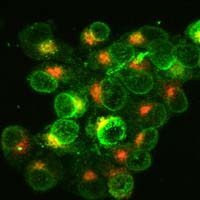Understanding Immune Modulation in Malignant Pleural Effusion

Malignant pleural effusion is a serious condition where cancer cells spread to the lining of the lungs. This leads to fluid buildup in the chest cavity. This fluid accumulation can make breathing difficult and is often a sign of advanced lung cancer. Pleural effusion is a common symptom of malignant pleural mesothelioma.
Current treatments for malignant pleural effusion are limited. They focus on relieving symptoms. New findings in understanding the immune system’s role in cancer have led to new treatment possibilities.
The Immune Microenvironment
The immune system plays a crucial role in the development of malignant pleural effusion. The immune microenvironment is a complex network of cells that interact with tumor cells. This environment can either promote or inhibit tumor growth. It depends on the balance of immune responses.
In malignant pleural effusion, the immune system is often suppressed. This allows cancer cells to evade detection and thrive. Immune cells play key roles in regulating the immune response. Understanding how these cells interact with the tumor microenvironment can lead to new treatment approaches.
Immunotherapy is a promising approach for treating malignant pleural effusion. It aims to boost the body’s immune response against cancer cells. One strategy is to target immune checkpoint molecules, such as PD-1 and PD-L1, which can suppress the immune response. Drugs that block these checkpoints have shown promising results in clinical trials. They help the immune system recognize and attack cancer cells.
Future Directions and Challenges
While immunotherapy shows great promise for treating malignant pleural effusion, challenges remain. One challenge is understanding the interactions between immune cells and the tumor microenvironment. Different tumors may require different immunotherapy approaches. More research is needed to develop personalized treatments.
Additionally, immunotherapy can cause side effects, as it activates the immune system. Managing these side effects and identifying biomarkers are areas of ongoing research.
Understanding the immune system in malignant pleural effusion is opening up new avenues for treatment. Immunotherapy, in particular, shows promise for improving outcomes for malignant pleural effusion patients. Continued research is critical for advancing treatment options and improving patient outcomes.
Source:
Ge, Shan, Yuwei Zhao, Jun Liang, Zhongning He, Kai Li, Guanghui Zhang, Baojin Hua, et al. “Immune Modulation in Malignant Pleural Effusion: From Microenvironment to Therapeutic Implications.” Cancer Cell International 24, no. 1 (March 12, 2024): 105. https://doi.org/10.1186/s12935-024-03211-w.





